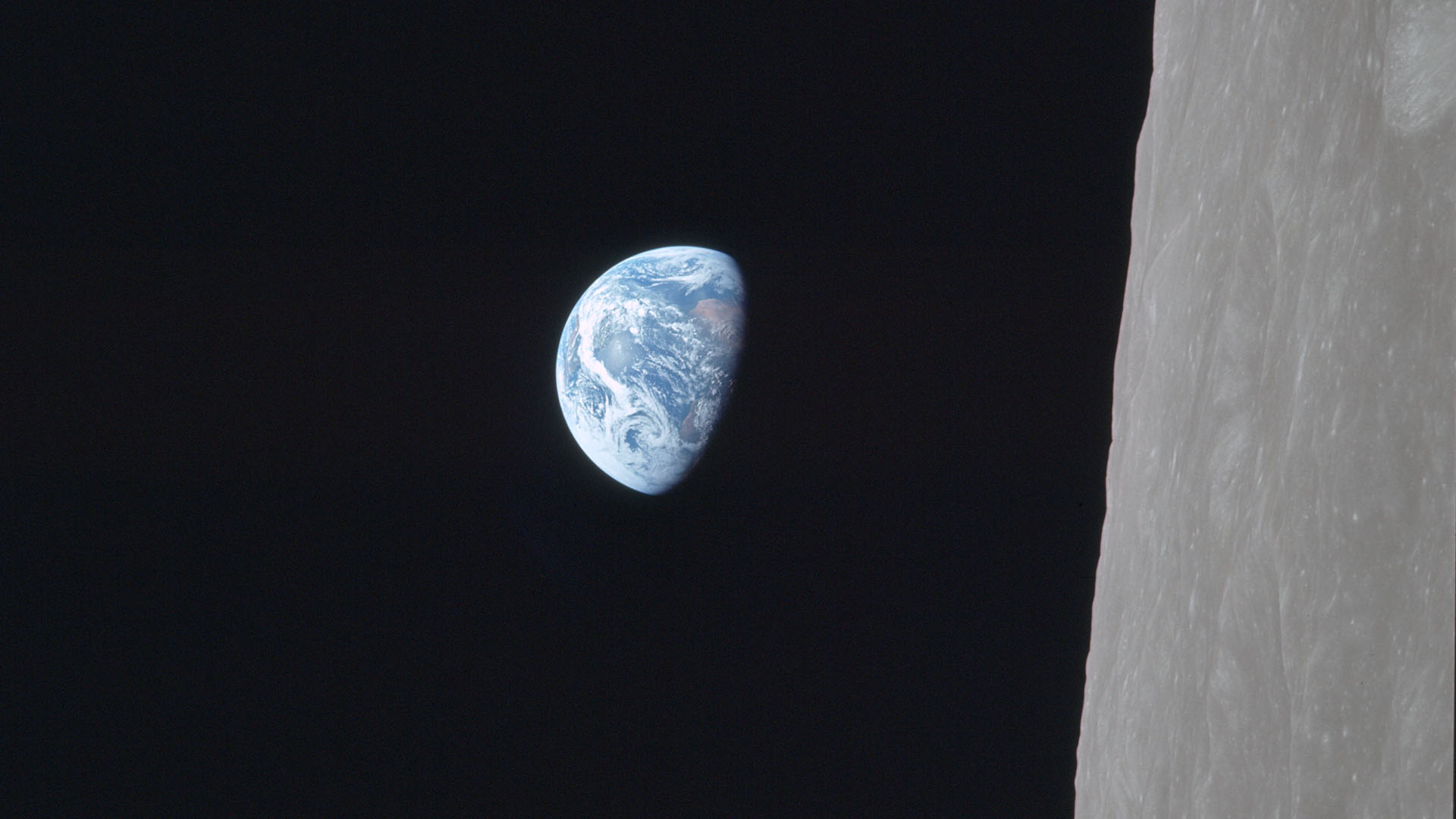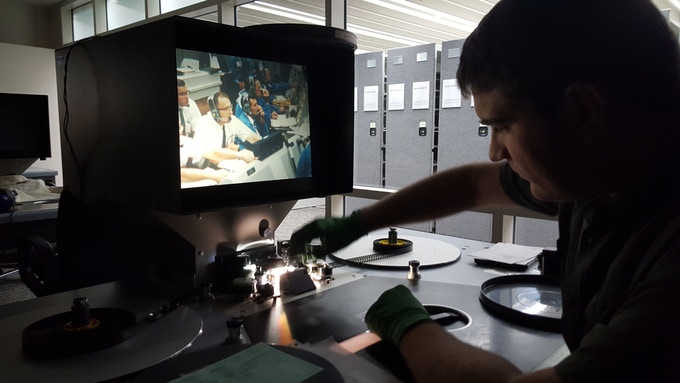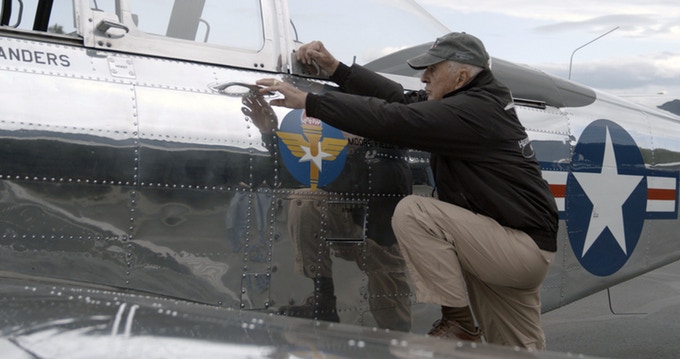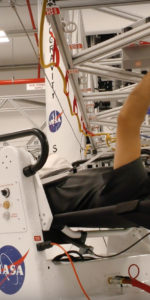
“If I have seen further,” the great English scientist Sir Isaac Newton once remarked, writing about the Dutch philosopher and physicist René Descartes, “it is by standing on the shoulders of giants.” In 2018, the world will recognize three giants of our age, as we observe 50 years since the epochal Apollo 8 mission, which saw a centuries-long human dream of traveling to the Moon finally turn to reality. Astronauts Frank Borman, Jim Lovell and Bill Anders were the first men to ride the gigantic Saturn V rocket, the first to depart Earth’s gravitational well, the first to cross 240,000 miles (370,000 km) of cislunar space and the first to behold our nearest celestial neighbor, up close and personal, in readiness for an eventual piloted landing. Even more significantly, their jaw-dropping glimpse of “Earthrise”, behind the barren lunar limb, and a haunting reading of the opening verse of Genesis, offered a true perspective of humanity’s place in the cosmos.
Five decades later, director/producer Paul Hildebrandt and producer Jon Martin will explore the audacious journey of Apollo 8 and the lives of the three men who accomplished it. Through restored NASA archival films, the National Archives and the astronauts themselves, their KickStarter-funded film First to the Moon aims to transport its audience back in time through the upbringing of Borman, Lovell and Anders to their selection as astronauts and their voyage to lunar orbit. This visually and musically enthralling film, told through archival film and often unseen photography, together with animated representations, is accompanied by an orchestral score from the film’s composer and live musicians, generating “a truly cinematic experience”.

From President John F. Kennedy’s bold challenge in May 1961 to land a man on the Moon before the decade’s end, through the Mercury, Gemini and Apollo programs and the ever-present Soviet menace, the United States was carried along by a technological whirlwind. Finally, by the summer of 1968, work was already underway to direct Borman, Lovell and Anders to the longest and most arduous venture upon which mankind had ever embarked. “At the time that we did it,” said Lovell in a preview of the film, “I don’t think we fully understood the significance of the very first flight to the Moon.” Anders admitted that, in his mind, there was just a one-in-three chance of pulling it off, whilst for Borman the greatest accomplishment of the mission “was doing what the President has asked us to do, within the timeframe that he asked us to do it”.
Video Credit: Paul Hildebrandt
Filming of First to the Moon is now complete, with over six hours of interviews with the Apollo 8 crew, capturing their life stories from birth to the present day. Via a KickStarter campaign, which closes Thursday, 15 February, Mr. Hildebrandt aims to complete the research and acquisition of Apollo 8 film and photography—including over 50 reels of 16mm and 35mm film from the National Archives, as well as color news clips from the period—together with the hiring of animators, editors, composers and sound crew. Additionally, the campaign will support the post-production process, editing the film, creating the animations, composing and recording the musical score and readying First to the Moon for public release. This will enable a timely celebration of 50 years since “one of the greatest space missions in history, the journey of Apollo 8 to the Moon”.

Launching from Earth was only the first challenge. “I only got scared twice on the flight,” said Anders. “The launch was one of ’em!” Perhaps Apollo 8’s greatest irony, after traveling such an immense distance into the unknown, was that it discovered far more than “just” the Moon. Through one of the command module’s tiny windows, Anders beheld the electrifying view of “Earthrise”, behind the lunar limb. “It’s ironic,” he said in a preview of First to the Moon, “that we went all the way to the Moon, to explore the Moon, and what we really discovered was the Earth.” The results were profound. In the decade which followed, the Clean Air Act, Clean Water Act and Endangered Species Act were passed, the catalytic converter was installed in vehicles, the environmentally harmful insecticide DDT was banned and steps were put in place for the creation of the Environmental Protection Agency (EPA). Moreover, the mission placed our true place in the cosmos into stark relief. “How insignificant we all are,” said Lovell in the film. “Everyone I ever knew—five billion people—could be behind my thumb!”
Mr. Hildebrandt has a history of thought-provoking filmmaking, having previously produced Fight for Space, which explored the economic and cultural benefits of human space exploration and examined the political events which determined NASA’s declining budget since the 1960s. In a sense, First to the Moon has a similar undercurrent, as it seeks to spread awareness, not just of what NASA did in December 1968, but “what it could do again, if our space program were allowed to thrive like during the Apollo program”.

“I was inspired by Apollo 8 just a few years ago, during the production of Fight for Space,” Mr. Hildebrandt told AmericaSpace. “Like many people, I had not thought much about the mission, instead focusing on Apollo 11 as the main triumph of Apollo. I soon learned that the mission itself is such an incredible story and was really the first time we left Earth, not Apollo 11. So I felt it deserved better treatment.”
It is expected that the film, which will be released by December, will be characterized by “exciting and photo-realistic animations” of the flight and backdropped by a musical score of live players and state-of-the-art electronic instrumentation. “We guarantee your ears will love it,” the KickStarter campaign declares.
Here is how you can help:
*Share this project on social media platforms, including Facebook, Twitter and Instagram
*Share this project through email with friends, family or colleagues
*Share the film trailer
*Pledge your support for the campaign, via KickStarter
FOLLOW AmericaSpace on Facebook!
Missions » Apollo »





For those of us old enough to witness Apollo 8 on live TV, it brings an added sense of awe. The Apollo astronauts have earned a special place in history and they can truly be called heroes.
Descartes was French not Dutch ! He died there though.